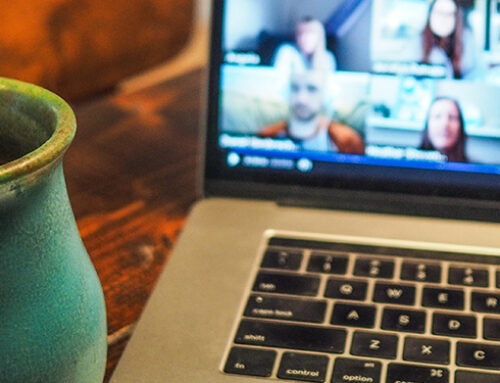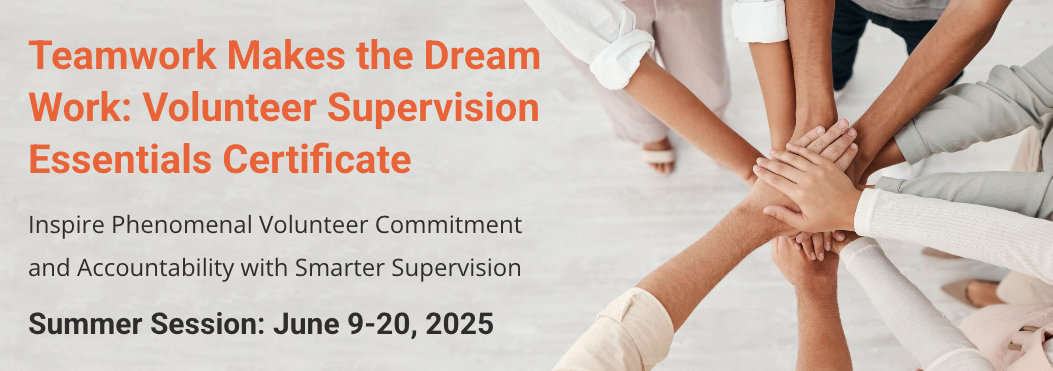Why You Should Celebrate Black History Month with Your Volunteers
As leaders in the volunteer engagement field, the team at VolunteerPro is committed to being champions for more inclusive volunteerism.
In this blog post, we aim to inspire volunteer leaders to look at their own organization and see if their volunteers represent the community they serve AND give ideas to address existing power imbalances and thus begin to take steps toward equity.
We’ve given tips on how leaders can advocate for equity during times of unrest and uncertainty.
And we brought in diversity, equity, and inclusion expert Dr. Matthew C. Whitaker to provide a 2-part training that taught us all how to be a better champion diversity, equity, inclusion, and cultural adaptability efforts for volunteer initiatives.
Today, we are encouraging you to celebrate Black History month with your nonprofit’s volunteers.
Read on to learn the story behind Black History Month, why it’s important, and how you can celebrate it, meaningfully (and year-round), with your volunteers. This is your time to celebrate the impact African Americans have had on the United States and reflect on the continued efforts African Americans make to fight for racial justice and equality.
The Story of Black History Month: Did You Know?
In the summer of 1915, the state of Illinois sponsored an event that showcased the progress African Americans had made since the destruction of slavery. Carter G. Woodson travelled from DC to Chicago to celebrate this 50th anniversary of emancipation, joining the event as an exhibitor with a Black history display.
Inspired by the celebrations, Woodson decided then and there that he would form an organization to promote the scientific study of Black life and history. He went on to form what is known today as The Association for the Study of African American Life and History (ASALH).
His hope was that the findings researchers were uncovering would be published and popularized, and in 1926 he announced the association would host Negro History Week in February.
It is commonly thought that Woodson choose February to celebrate the birthdays of two prominent Americans who shaped Black history in our country: Abraham Lincoln and Frederick Douglass.
In addition, Black Americans had already been celebrating Lincoln’s birthday (February 12th) since his assassination in 1865, and since the late 1890’s they had been celebrating Douglass’s birthday (February 14th). With these pre-existing celebrations in place, Woodson decided to ask the public to tack on an extension of their study of Black life and history.
However, Woodson wanted to do more with the traditional celebrations held during this time. He wanted to focus on the countless Black men and women who contributed to the advance of human civilization.
The response was overwhelming, and Woodson and the Association struggled to meet demand. They set a theme for the celebration and provided study materials. The weeklong celebration proved to be more dynamic than Woodson or the Association could control, and Woodson used the public interest to his advantage to push for yearlong studies of Black life and history.
In the late 1960’s, we started to see the shift from a one-week celebration to a month-long celebration, with President Gerald Ford officially recognizing Black History Month in 1976.
Importance of Black History Month
Black history is American history, and it is important that every American knows, learns, and understands the contributions Black American’s have made to bring about advances in social, economic, educational, cultural, etc. realms.
However, most K-12 schools in the United States still teach a curriculum that focuses on historical achievements of White people. By celebrating Black History Month, we all get an opportunity to learn about and understand the importance of Black heritage and culture.
Nearly 105 years after the founding of the ASALH, one of the organization’s biggest challenges is keeping people engaged in Black history beyond February. Once February ends, Black history tends to be moved to the back burner.
It’s important that we recognize Black History month — as well as other holidays that celebrate historically marginalized people — as a starting point for conversations about how we can be more inclusive in our conversations and teachings around American history.
For a comprehensive list of diverse holidays and special months, go HERE.
Highlighting these events also help communicate to diverse volunteers that you value their contributions, too, and reminds everyone of your commitment to a more just and equitable society for all.
How You Can Celebrate Black History Month with Your Volunteers
How many of you recall your school celebrations for Black History Month? Now, how many of you recall the last time your employer did something to celebrate Black History Month?
It’s common for schools to celebrate Black History Month, yet as we enter the workforce, companies aren’t mandated to educate their employees on African American history, so celebrations might fall off your radar.
Don’t fall into this trap with your volunteers! It’s a lost opportunity, especially if you are committed to building a more diverse volunteer base.
Even if your organization doesn’t offer opportunities to celebrate Black History Month, you can still celebrate it with your volunteers.
Read on for some meaningful ways to celebrate this February (and beyond).
Offer Education
Research local activists, educators, and/or speakers and set up a session for them to talk to your volunteers about race relations, civil rights, Black history or culture, etc. Better yet, tie it to your mission and you’ll engage your volunteers even more.
Work for a Head Start program? Bring an expert in to talk about how ethnicity can affect access to quality education.
Work for a health care agency? Bring in an expert to talk about how the coronavirus pandemic has disproportionately impacted people of color.
Work for an art museum? Bring in someone to spotlight contributions to the art world by Black Americans.
Want to get more interactive? Plan a workshop. Participants in these learning opportunities will engage in hand-on learning and critical thinking, which will really reinforce what they are learning.
Showcase Black Culture
You can celebrate Black Culture year-round with some of these ideas for socializing with volunteers.
1. Host a Book Club: Focusing on Black authors, select a variety of books, both fiction and nonfiction, and host a discussion with your volunteers. Looking for some book suggestions? Check out the Noname Book Club for some ideas.
2. Host Movie Nights: Much like the book club, consider hosting a monthly movie night. However, don’t choose movies that only talk about the trauma and struggles of being Black in America. This only serves to further stereotypes and won’t open your eyes to how Black Americans contribute to American culture. Instead, select some movies from this list.
3. Host a Cooking Class or Dinner Party: Hire a local chef or catering company that specializes in Soul food and have them cook, or teach your volunteers how to cook, some recipes that are traditionally prepared and eaten by African Americans.
4. Take a Dance Class: Or, if your volunteers prefer, stream a dance performance. Check out how you can get online, Lindy Hop inspired Blues and Jazz dance lessons here. If you know someone local, reach out to them and ask if they can set up a Zoom dance class for your volunteers.
Support Black Communities
Encourage your volunteers to support Black owned businesses by shopping at their stores, eating at their restaurants, and hiring them for their services. Compile a list of local and national businesses and provide it to your volunteers.
Also, consider hiring a Black-owned business to cater your next volunteer function or recognition event.
In addition, consider partnering with a Black nonprofit or an HBCU for a service project or event.
Host Events
Events with your volunteers can serve a greater purpose than appreciation and engagement in them and your organization’s work.
Along the same line of providing education, host Lunch and Learn’s or informal networking events throughout the year. Tie them back to your organization’s mission and how your service area impacts, and is supported by, the Black community.
Connect the history of Black communities in your area to what’s happening in the present moment and what you anticipate for the future. Learn about and discuss your local education and justice system. Learn how you can make volunteer meetings more inclusive. Learn how to define and see micro-aggressions and learn how to be an ally. Learn about local, Black community members who are making a difference in your community.
There is no end to how our teams can expand their consciousness by simply bringing people together in the spirit of positive change.
Don’t Stop Here
Use the momentum of Black History Month to start conversations on how you can become more inclusive, and don’t stop when it’s over!
Use this time to set the intention to continue conversations and activities throughout the year as part of your diversity, equity, and inclusion plan.
Encourage open dialog about equity and be willing to make space for challenging conversations. Seek to understand before being understood.
Celebrating the accomplishments of people who don’t get recognized often enough is a wonderful way for nonprofit leaders to show volunteers from all walks of life that they are seen and heard. Special celebrations like Black History month offer an easy opportunity to get the conversation started!








